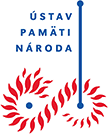Expropriation of Land, Evictions and Forced Collectivization
The communist regime punished its real as well as potential opponents also through confiscation of their property, including their houses, land or agricultural property. Relatives of the imprisoned people were often being evicted into other parts of the state. The factual expropriation of land was identical to establishing the collective farms. During the forced collectivization, many farmers were forced to enter these farms under severe pressure of the regime, which used various coercive means to achieve its goals.

BACIGÁLOVÁ ZUZANA
Victim of the property collectivization... In 1952 her husband Ľudovít was sentenced by the county court to 7 years imprisonment for committing a crime of sabotage. Their house was confiscated, as well as their land, living and dead stocks. Zuzana was forced to move out to a state property in Moravany, in a Čáslav district, near Pardubice, where she had to work hard for whole 3 years.

DROPPA ADAM
The communist regime deprived his family almost of everything they had ever had. He was forced to spend several years in the Auxiliary Technical Battalion (PTP); his father was a victim of fabricated trial and ended up in Jáchymov mines. The rest of his family was forcibly moved out to Bohemia.

HANKO JOZEF
On December 9, 1949 he was sentenced for high treason and espionage to 15 years of imprisonment. After temporary “stays” in Bratislava and Leopoldov, in 1950 he was transported to uranium mining camps: at first to Jáchymov for three years, then to Příbram where he spent seven years.

KUNA ALOJZ
Alojz Kuna’s father was in the village labelled as the “local rich man”; however, in 1952 he was sentenced to two years of imprisonment, imposed a three hundred thousand crown fine and forced to move out of Nitra region. František Kuna served his sentence in Jáchymov mines. Moreover, his family had suffered the consequences of persecution for many following years.

OKOLIČÁNI JÁN
He is a man who loved nature very much since his early childhood. This honest and principled man was labelled as unreliable and deprived of the chance to finish his university studies. He risked his life on the eastern front and got involved in the events following the outbreak of the Slovak National Uprising. His desire to run the family property was thwarted by the post-war left-wing government that deprived him of everything what his family had ever had.

ROHÁČEK VLADIMÍR
After the communist takeover, the family of Vladimír Roháček experienced one affliction after another. At first, his grandfather was imprisoned, father confined to psychiatry and then, he also ended up in prison, supposedly for an offence of subversion of the republic. He was a member of a group of young believers, who used to meet regularly. After being released from a remand centre, he was sent into a labour camp for “re-education”.

SLIVKA MICHAL
As to an enemy of the communist regime, within the frame of economically-technical adjustment of land, they exchanged his lots for other of a worse quality, and they confiscated his cattle for several times. Moreover, in the 60’s and 80’s he was investigated six times and they prosecuted him for artificial criminal acts.
